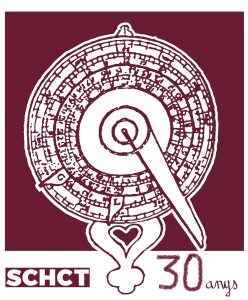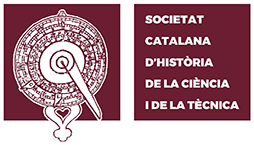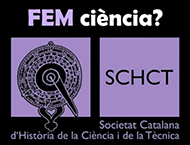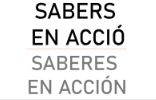
La Societat Catalana d’Història de la Ciència i de la Tècnica (SCHCT) fou creada el 1991 com a representació col·lectiva professional i disciplinar de la història de la ciència, la tècnica i la medicina. Des de la seva fundació, a través de les seves accions ha permès impulsar el paper cívic del passat i present de la ciència, la tècnica i la medicina, el relleu generacional i la professionalització en l’àmbit geogràfic de llengua catalana i a nivell internacional.
———————————————————————
Societat Catalana d’Història de la Ciència i de la Tècnica
“30 Anys d’Educació, Investigació i Professió”
———————————————————————-
Coordinat per Josep Simon & Alfons Zarzoso
19 de Gener 2022, On line, 18.30 h. (CET) enllaç
Covid-19 y Brasil: una mirada histórica
Marcos Cueto (Fiocruz / DHST-IUHPS)
Esta presentación analiza las respuestas del gobierno de Jair Bolsonaro a la COVID-19 durante el primer año y medio de la pandemia en Brasil (marzo de 2020 a junio de 2021). En el contexto de una intensa inequidad social y desmantelamiento del sistema de salud pública, la implementación de políticas autoritarias e irracionales significaron la banalización de la muerte de pobres y discriminados, como los afrobrasileños e indígenas de la Amazonía, así como la destrucción del diálogo entre la sociedad civil y el Estado sobre el que se sustentaban intervenciones sanitarias pasadas. Asimismo, surgió un debate público sobre si las respuestas del poder eran un caso extremo de negligencia o de necropolítica (es decir, de permitir que muriesen ciudadanos considerados descartables).
Marcos Cueto recibió su doctorado de la Universidad de Columbia de Nueva York. Actualmente es editor de la revista Historia Ciencia Saúde Manguinhos publicada por la Casa de Oswaldo Cruz, Fiocruz, en Rio de Janeiro. Es autor de numerosos trabajos sobre la historia de la ciencia y la salud pública latinoamericanas. Es también presidente de la División de Historia de la Ciencia y la Técnica de la International Union of History and Philosophy of Science and Technology por el periodo 2021-2025.
Presentació a càrrec de Enrique Perdiguero (IILP-UMH)
17 de Febrer 2022, On line, 18.30 h. (CET) enllaç
More needed than ever: The role of the history of science in the ‘decolonising the museum’ debate
Marta Lourenço (MUHNAC-CIUHCT-PRISC, Universidade de Lisboa / UMAC-ICOM)
The growing interest of historians of science, technology and medicine for material culture, collections and museums is well known. The shift from mere interest to actual use of material culture as primary sources for history is not immediate however, requiring training and commitment by historians. It also requires that museums are prepared, and collections are accessible and documented. We are better than we were 20 years ago, but the ‘two worlds’ still have a long way to go.
In this lecture I will discuss an area of intersection between the world of museums and the world of historians that is less challenging for historians and museums and significantly facilitates collaborations with mutual benefit: the so-called ‘decolonizing the museum’ initiatives. Largely anchored on provenance research, contextual analyses, relevance of objects and meanings in the past and in the present, ‘decolonizing’ scientific collections and heritage aims at making visible voices and perspectives that were silenced during decades, if not centuries, of curatorship in European museums.
Using MUHNAC’s colonial scientific collections as a point of departure, I will argue something quite trivial: that this important work of restitution collections and heritage to the broad public sphere and, more specifically, to communities of origin, should not rest on museum professionals alone and cannot be properly done without historians.
Marta C. Lourenço is the present director of the National Museum of Natural History and Science of the University of Lisbon (MUHNAC). She has background training in Physics (University of Lisbon), a MA in Museology (Nova, Lisbon) and a PhD in Museology and History of Technology (CNAM, Paris). She is the national coordinator of PRISC (Portuguese Research Infrastructure of Scientific Collections). She teaches Material Culture of Science in the Masters of History and Philosophy of Science (Faculty of Sciences, University of Lisbon) and is a research member of CIUHCT, the Interuniversity Research Centre for the History of Science and Technology (University of Lisbon). Since 2016, she is the President of the International Committee for University Museums and Collections (UMAC) of the International Council of Museums.
Presentació a càrrec de Ignacio Suay (IILP-UV)
29 de març 2022, On line, 18.30 h. (CET) enllaç
The Rise of University museums and collections at the turn of the XXI st century in the scope of science and society new dialogue
Sébastien Soubiran (Université de Strasbourg/Universeum)
Presentació a càrrec de Josep Simon (IILP-UV)
28 d´abril 2022, On line, 18.30 h. (CEST) enllaç
Gender, domesticity and little slow science. The case of Agnes Pockels and the beginnings of surface science
Brigitte van Tiggelen (Mémosciences / Science History Institute)
Working in her kitchen, Agnes Pockels (1862 – 1935), a self-educated young woman living in Braunschweig (now Germany), published ground-breaking results in the nascent field of surface science in the early 1890’s. She established an experimental method to investigate the properties of thin films at the surface of water. In fact, with material found at home, she devised and assembled an instrument that would later become a standard laboratory tool and bear a man’s name: Langmuir trough (also referred to as Langmuir-Blodgett trough).
This research is part of a bigger project focused on the life and work of Agnes Pockels, taking her as a case-study to provide a better understanding of the articulation of gender, domesticity and science. Her investigations were indeed conducted at her home, and she even declined an offer to use laboratory facilities at the University of Göttingen, arguing her housewife duties didn’t allow her to move out of her household where she was required to take care of her ailing parents. Her modest publication record (15 articles and one translation in 35 years) focuses almost exclusively on surface phenomena. Only much later in life, at a time she was no longer contributing to the field, was she presented as a “founding mother” of the new discipline, when, in 1931, the Kolloid-Gesellschaft (the German colloid society) granted her a prize in recognition for establishing the standard methods in observing and experimenting with surface layers and surface films.
Her life and work are most often mentioned in the history of women in science with a narrative that underlines the domestic duties to which her gender confined her, and the belated acknowledgments from the scientific community as an inventor whose creativity laid the ground for others to pursue research in a new field. My perspective however ambitions to go beyond the individual trajectory or evaluating her exact role in the emergence of surface sciences. However remarkable the individual trajectory indeed, these narratives do not integrate a context in which the practice of sciences is occurring in domestic settings, nor does it measure the changing status of an emerging field. It will also be an opportunity to discuss regimes of scientific research such as thrifty science, slow science and little science.
Brigitte van Tiggelen is Director of European Operations at the Science History Institute, she has led Euchems’ Working Party on History of Chemistry and is organizer of the 10th ESHS Conference (Brussels, 2022). Her research fields include the periodic table, chemistry as a discipline, science popularization, and women and couples in sciences. She has recently co-edited the book Women in their Element: Selected Women’s Contributions to the Periodic System (World Scientific, 2019).
Presentació a càrrec de Ignacio Suay (IILP-UV)



